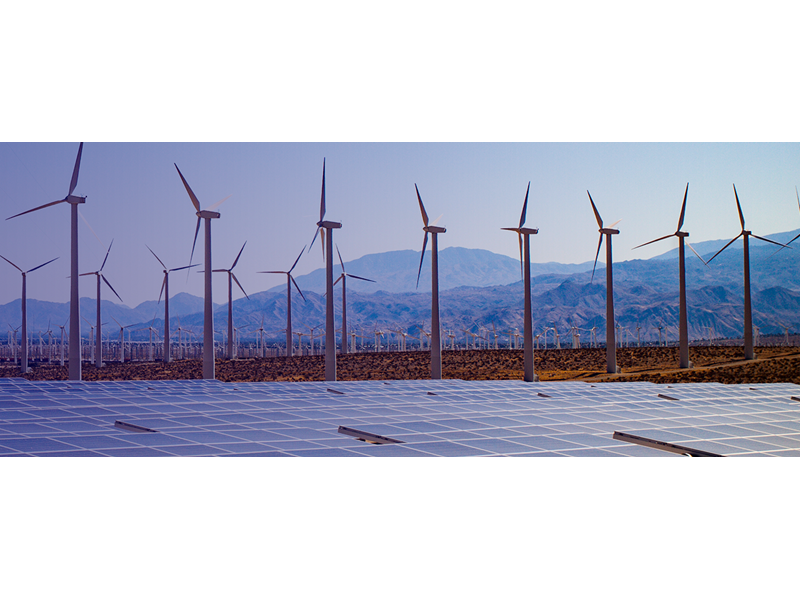Interested in attending the 2024 APAC Energy & Natural Resources Summit?
Energy in Asia: in need of a power up?
With fossil fuel demand resilient and emissions rising, a change in direction is needed
3 minute read
As 2023 draws to a close, the energy transition in Asia Pacific is not going to plan. Across the region, fears around energy security are motivating countries to lock in new fossil fuel supply. With demand for oil, gas and coal stubbornly high and carbon emissions increasing, do Asia’s net zero ambitions need a reboot?
Our annual APAC Energy & Natural Resources Summit will bring together Wood Mackenzie’s expert analysts and leaders from across the industry to discuss what needs to be done to get Asia’s energy transition back on track.
Register now to book your place at the 2024 APAC Energy & Natural Resources Summit, due to take place on 9 May at the Marina Bays Sands in Singapore. Or read on for a brief introduction to the key issues that emerged from this year’s event.
Energy security is being prioritised over the energy transition
On the face of it, the shift to a more sustainable approach to energy is doing well in Asia Pacific. As evidence, over 60% of new power generation capacity in the region over the next five years will come from wind, solar and energy storage projects (with three-quarters of that in China). However, APAC is still early in its energy transition, with 66% of power generation still coming from fossil fuels in 2022. At our 2023 event we predicted renewables share of generation in the region would overtake that of fossil fuels by 2034. But with many countries in the region prioritising energy security over the energy transition, could net-zero targets be at risk?
APAC needs more clean, affordable gas
Gas has a critical role to play in the energy transition globally, but for projects to be economically viable production needs to be both clean and affordable. With demand for gas in Asia Pacific rising and supply falling, a huge gap will open up from 2025 onwards unless new discoveries can address the shortfall. To make things more complicated, a high percentage of discovered reserves are contaminated, creating both an economic and an environmental cost. While overall exploration in the region has dropped considerably, in Southeast Asia huge amounts of new acreage have been licensed since 2020. But can sufficiently advantaged reserves be found?
Can APAC deliver on its key role as a provider of energy transition minerals?
The energy transition is creating massive demand for key raw materials, particularly the metals used in batteries for electric vehicles and utility scale storage. Thanks to abundant natural resources, Asia Pacific has an outsized role to play in supplying these vital minerals.
Currently, China’s dominance throughout the supply chain is beyond doubt, with over 80% of battery cells and similar proportions of all major components produced there. However, concerns around overreliance on China has kickstarted a drive to localise battery supply chains in the West. With bottlenecks also a major issue as the market rapidly grows, can APAC fulfil its full potential as the world’s key supplier of energy transition minerals?
Low-carbon energies need to attract more capital
Following a peak for ESG enthusiasm globally in 2022, some elements driving decarbonisation have gone backwards. With energy security concerns driving a resurgence in demand for fossil fuels, energy companies and financers alike are reneging on key net-zero commitments
To attract more capital to low carbon energies, stakeholders need to shift the risk-reward balance in their favour using both carrot and stick. Investment must be rewarded through tax incentives, carbon pricing, differentiated cost of capital and a green premium. At the same time, risk can be reduced, both via regulation and permitting and through a range of mechanisms including contracts for difference, offtake agreements and direct financing.
What’s in store at the APAC Energy Summit 2024?
Overall, there’s little doubt that fresh thinking is needed from governments, companies and investors to revitalise the goal of a sustainable energy future for Asia Pacific. Wood Mackenzie’s APAC Energy Summit 2024 will be an important arena to explore a revitalised approach.
This year’s Summit featured keynote interviews with the CEO of Mitsubishi’s Natural Gas Group Jun Nishizawa, HSBC’s Global Head of Metals, Mining and Minerals, Michael Willoughby, and Woodside Energy’s Mark Abbotsford. The event also featured a series of lively and wide-ranging panel discussions with industry stakeholders, including senior representatives from Blueleaf Energy, DBS Bank, Fortescue Future Industries, HSBC, PETRONAS, Sinopec Gas Company and Standard Chartered Bank. Expect a similar format for the 2024 event, which promises to be bigger and better than ever.
Don’t forget to register and reserve your place at next year’s event!
This event is complimentary for Wood Mackenzie clients.
If you are not a Wood Mackenzie client / subscriber, book your tickets by 31 December to get 20% discount on your ticket!
Promo Code: EARLY20

2024 APAC Energy & Natural Resources Summit
9 May 2024 | Marina Bay Sands, Singapore
Book your tickets now




